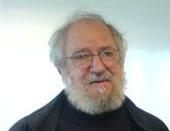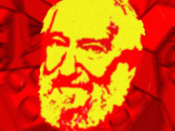Article: "Cyberspace and Learning from the Electronic Journal of Sociology" (2002), written by Herb Thompson; Murdoch University, Murdoch Australia
Statement of the Problem: The challenge for teachers and learners is how to combine the strengths of the computer and the human brain to promote learning.
Literature Review: the author of this article gives many different sources from their findings. Thompson states that learning through the computer should be approached with caution, but that it also has "many possibilities for the production of knowledge." Seymour Papert (Papert 1993; 1996) believed that computers are partners in thinking and can be used to create user "micro-worlds", where inquisitive students learn through a process of exploration and discovery.
Hypothesis: I thought the hypothesis was that Cyberspace promotes Learning.
Method: One of the methods that was used was human memory has been extended with digital media from a basic unit of portable dissemination of 100,000 words (an average book), to a 5.3-gigabyte
digital videodisc (equivalent to 5,300 books) (Murray, 1997).
Data Analysis: With what seems an unproblematic reference, we call this non-physical place 'cyberspace,' and almost matter-of-factly, began to engage the "consensual hallucination" (Gibson 1984: 51).
Conclusion: Researchers believe that in order to accomplish the goal of knowledge by teachers and learners, an individual must work little by little to change information into knowledge. Some see computer-mediation as a danger, possessing a sense of threat and loss of humanity. Others see it as seductive and enticing, with a sense of stimulation that comes both from within and without (Stone 1993: 108). We have much to learn from those, within the humanities, writing about the effects technological change on the teaching/learning process. One lesson that emerges from cyber cultural writing is the recognition that "the present is more important than the past as a...


